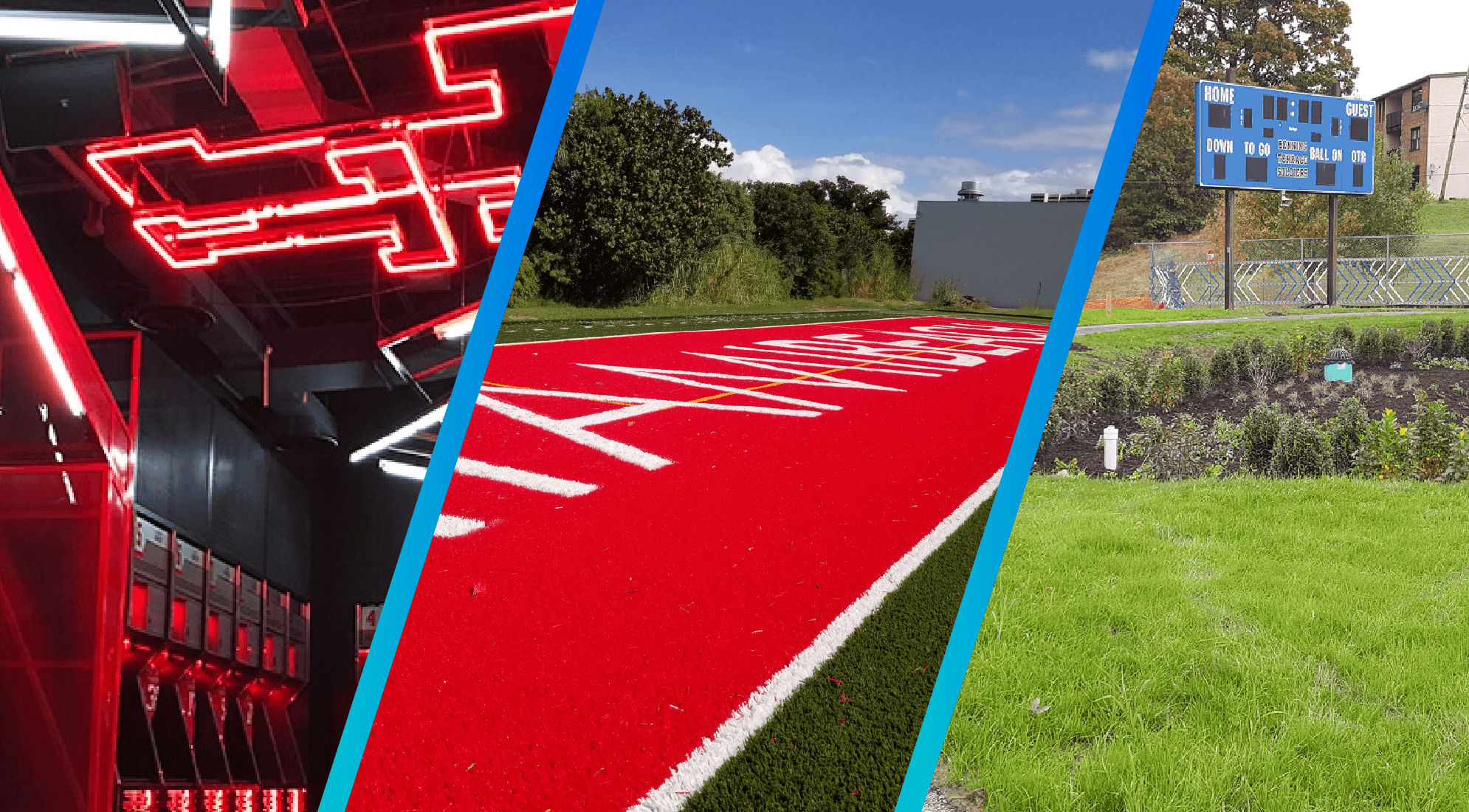When most people think about summer, they think about cookouts, baseball games and beach vacations. When K-12 facilities leaders think about summer, one thing comes to mind: construction. With the longer days and warmer weather, summer is building season across the country. But a lot of work goes into making a summer construction project successful, long before the first crew shows up. Here are some actions facilities leaders should take now and considerations they need to make today to ensure their summer projects succeed.
1. Have a Clear End in Mind
In a sense, planning a summer construction project is like planning a summer road trip: You have to know where you want to end up. Defining desired outcomes, project benchmarks and clear objectives is needed to establish measurable standards of success. It also helps all stakeholders understand why a summer construction project is important for supporting the mission of your organization. Once the desired end has been communicated to stakeholders, leaders can build a timeframe for project completion.
2. Take a Holistic View of the Summer
Believe it or not, there’s more going on this summer than your construction project. Summer classes and sports practices are still happening during your roof repairs. The church that meets in your school gym is showing up on Sunday, even during your office expansion. Take stock of the circumstances surrounding your projects, including the arrangements and accommodations that must be made for the groups that use your facilities in the summer months and any external events that might delay work.
Summer’s spike in construction activity puts added pressure on K-12 facilities and procurement leaders to plan, procure and execute projects in a condensed timeline. There’s no time to waste, so download this free eBook to read preparation tips to help simplify project planning and execution.
3. Prepare for the Worst
Even the best-planned projects carry some risk. Things happen. The budget might get cut or funding might get diverted. The contractor might not hit your deadlines. Prolonged summer storms could disrupt a project. As a project owner, you must be ready to adjust. You can do that by building a list of potential risks months before the project begins and creating contingency plans for each risk. You may not need any of those contingencies. But if you have them, you’ll be able to respond when things go awry.
4. Look into Grant Funding
All K-12 facilities leadership groups are at the mercy of funding. Facilities conditions assessments cost money. Renovations and improvements cost money. Hiring and training staff costs money. And more often than not, leaders are expected to deliver the same facilities experience or better this year with less money than they had last year. Grants can help close the gap. A great place to start your search for funding would be to visit your state’s Department of Education website to identify available opportunities. Further, your district may also have access to remaining ESSER funds made available through the American Rescue Plan Act.
Keep in mind, grant funding comes with strings attached, so it is a must that leaders evaluate every opportunity thoroughly. Here’s a tip from Lynn Sadosky, Director of Public Works for the Town of North Haven, Connecticut.
“If a project is funded through a grant, there may be restrictions on how a project is completed. For example, some grant oversight agencies might have rules about how a project goes out to bid.”
5. Review Your Scope of Work for Clarity
It’s easy to spend so much time in the details of a summer construction project that you get too close to it. This tunnel vision can make it difficult to clearly articulate plans and needs to colleagues and vendors. Seeing paperwork with fresh eyes is incredibly difficult — especially after several rounds of review — but it’s also necessary, especially when it comes to the Scope of Work. A Scope of Work should clearly lead the reader to one specific conclusion, leaving no room for interpretation. Ambiguity is your enemy and the best weapon against it is specificity.
When writing a Scope of Work, it’s important to sweat the small stuff and consider every single task. If an action is mandatory, the statement of work should use the words shall or must. You may also include photographs, drawings and additional visual aides to create clarity and prevent confusion. It is better to over-explain than to leave open the possibility of a misunderstanding. Conversely, a clear Scope of Work reduces disputes and miscommunications, resulting in projects that move seamlessly along your summer construction timeline.
6. Consider Alternative Construction Project Delivery
Summer will be here before you know it, and if you haven’t got your contractors lined up now, you’re behind the Eightball. One way to catch up is by using an Indefinite Delivery/Indefinite Quantity (IDIQ) project delivery method like Gordian’s Job Order Contracting (JOC). With JOC, multiple projects are completed over the life or one long-term contract. So instead of taking individual projects out to bid, you can take bids from contractors at the beginning of the contract and access their services without having to re-bid throughout the life of the contract.
Eliminating this upfront work can cut procurement time significantly, from months to weeks. As an added bonus, if you find a contractor you like working with, you can work with them again next summer using the same JOC contract.
Control What You Can Control by Prepping for Summer Construction
As we approach the busy summer construction season, so much can feel out of your control. The weather could go haywire. Contractors may not be able to deliver their work on schedule. Worse yet, contractors may discover issues hidden in walls or buried under concrete. Such events are out of your hands. What you can control is how you prepare for the busy season. If you have clear direction about what you want to accomplish, create contingency plans, do your best to close the funding gap and use the right project delivery method for your projects, you’ll be well prepared for summer.





